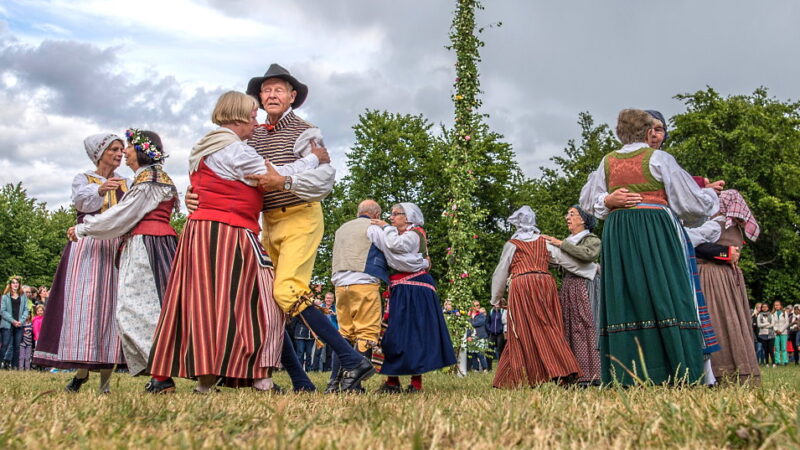Summer blooms and presents its abundant gifts to humanity in the form of the first harvest, bright greenery, and vibrant flowers. On June 24, we celebrate Midsummer and enjoy the magnificent weather and gentle sunshine. Time is fleeting; we need to appreciate the opportunity to enjoy life in close connection with nature.
History
The holiday is deeply rooted in pagan tradition. Ancient people in the Stone Age had a pantheon of gods, personifying the powerful forces of nature. Gifts were brought to them in order to receive mercy in return, in the form of a rich harvest, good weather, and the absence of cataclysms. The celebration of the summer solstice is associated with Sweden. On this day, girls dressed up, and the men lit bonfires. They performed rituals, danced, sang, wove wreaths, and jumped over the flames of bonfires.
Interesting Facts
Fire was perceived by ancient people as an effective means of protection against the actions of evil spirits.
- Christians have kept the tradition of the celebration but associated it with the name of John the Baptist. On this day, bathing was performed in the river as a sign of washing away sins and gaining purity. They read prayers.
- In European countries, the solstice is celebrated by decorating trees with ribbons painted in bright colors. This is a tribute to the echoes of paganism and the desire to appease the elements.
- Traditional treats include fruits and vegetables, which were collected in the new year.
In Scandinavia, fish dishes (herring, salmon) are served on the festive table with a side dish of potatoes, vegetable salads, and fried bread.
How to Take Part
Plan a trip to Sweden for the holiday to see an authentic celebration, where ancient rituals are embodied and national customs are observed. Read about ancient history, when people were still in awe of the forces of nature and tried to live in harmony with them. Go on a picnic with the whole family; try to spend more time away from the hustle and bustle of the cities.
When is Midsummer in 2025?
Midsummer is observed on June 24 each year.
Observations
| Weekday | Month | Day | Year |
| Tuesday | June | 24 | 2025 |
| Wednesday | June | 24 | 2026 |
| Thursday | June | 24 | 2027 |
| Saturday | June | 24 | 2028 |
| Sunday | June | 24 | 2029 |




